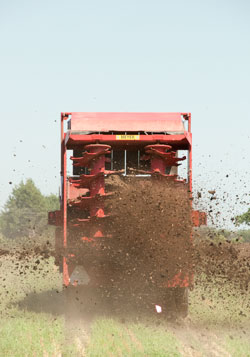
In a 5-to-1 decision (with one additional justice not participating in the case), the Wisconsin Supreme Court ruled that when manure enters a groundwater well, it can be considered a pollutant. In making that ruling, it effectively let the dairy farmer's insurance carrier off the hook for any damages incurred by those parties with contaminated wells. While this ruling is only binding in Wisconsin, all farmers should take notice and carefully evaluate how this ruling affects their businesses. Not the least of which would be revaluating one's current insurance coverage.
Just how did this happen?
Washington County dairy farmers had fertilized their fields by spreading manure from their dairy cows. According to court records, the Wisconsin Department of Natural Resources alleged that after manure was applied to the fields, it polluted an aquifer and neighboring wells. This took place even with the farmers reportedly following an approved nutrient management plan approved by an agronomist and the county conservation office.
"The court concluded that manure was a pollutant even though it was properly applied and being used as a fertilizer," stated Timm Speerschneider and Jordan Lamb, attorneys with DeWitt, Ross & Stevens S.C. "The court reasoned that a reasonable insured (farmer) would consider manure in a drinking water well to be a pollutant."
In rendering its decision, the Wisconsin Supreme Court reversed an earlier court of appeals decision that had ruled that insurance coverage provided by Wilson Mutual Insurance Company indeed covered the Washington County dairy farmers.
What should farmers do given this court decision?
"Farmers should be cautious in relying on the coverage provided by a general liability policy to cover damages or injury related to alleged well contamination," said Cameron Field, Angela James and Leah Ziemba with the Michael Best & Friedrich Law Firm. "Farmers should review their policies and work with their insurers to determine whether they require any additional coverage for claims such as the ones in this case (personal and property damage claims arising from well contamination involving manure)."
"In light of the decision, Wisconsin farmers should look carefully at both their manure handling practices and insurance policies and determine if coverage for contamination caused by manure is warranted and whether it is covered by their current policies," added Speerschneider and Lamb.
What does the future hold on insurance coverage?
"Insurance companies are likely to respond by creating either new policies specifically tailored toward farmers who land spread manure or riders for existing general liability policies that can be purchased to provide additional coverage," suggested Leah Ziemba. "We don't know what the price point will be on these new products which will be a concern."
Click to read the Michael Best and Friedrich article in the National Law Review.
Click to read the Wisconsin Supreme Court ruling.
(c) Hoard's Dairyman Intel 2015
January 19, 2015








